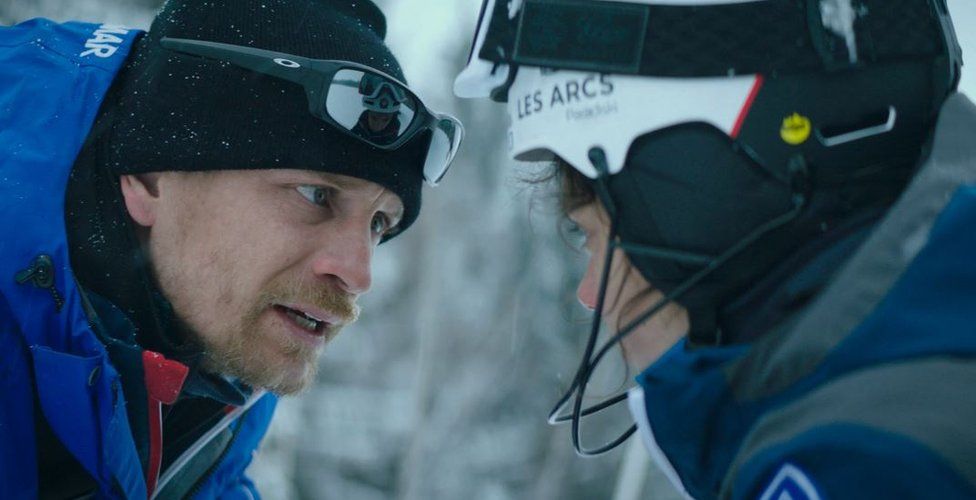
A film that fictionalises the sexual abuse a teenager suffers at the hands of her skiing coach was only possible thanks to the #MeToo movement, its director says.
Slalom, set in a competitive ski club in the French Alps, is Charlène Favier's first feature film. French actress Noée Abita plays Lyz, a 15-year-old girl who is accepted into a ski club that trains professional athletes up to an Olympic standard. She is groomed by her coach, Fred, played by In Bruges actor Jérémie Renier.
Favier says that she grew up in the Alps and skied competitively as a girl, but that "Slalom is not my story - it's not autobiographical in the true sense of the word".
"I did indeed experience someone having a hold over me, but in another sporting context. I preferred to use fiction because it allowed me to take a step back from my own story. Around me, I heard many stories of young girls who had experienced what I talk about in the film. I have received many accounts."
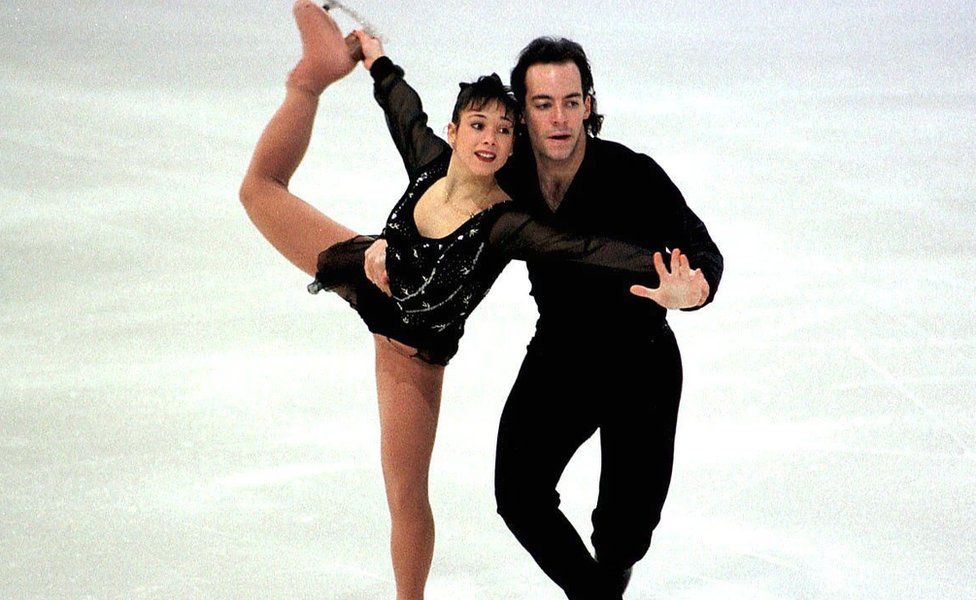
The director began writing the script in 2014, but the film wasn't made until 2019 - by which time the #MeToo movement had begun and accounts of sexual abuse in sport were coming to light, including those of more than 250 US gymnasts against their former doctor Larry Nasser.
In 2020, French figure skating was also rocked by claims of decades of sexual abuse within the sport, following allegations by French champion Sarah Abitbol that she had been repeatedly raped as a teenager by her former coach.
"When I started writing the film in 2014, no one was really talking about all that. But I still wanted to denounce a taboo," Favier recalls.
"I think that #MeToo was the first open door to all these stories to come out, and until I was able to shoot the film in 2019 this movement gave me strength and courage, because at the time I was afraid to tell the story."
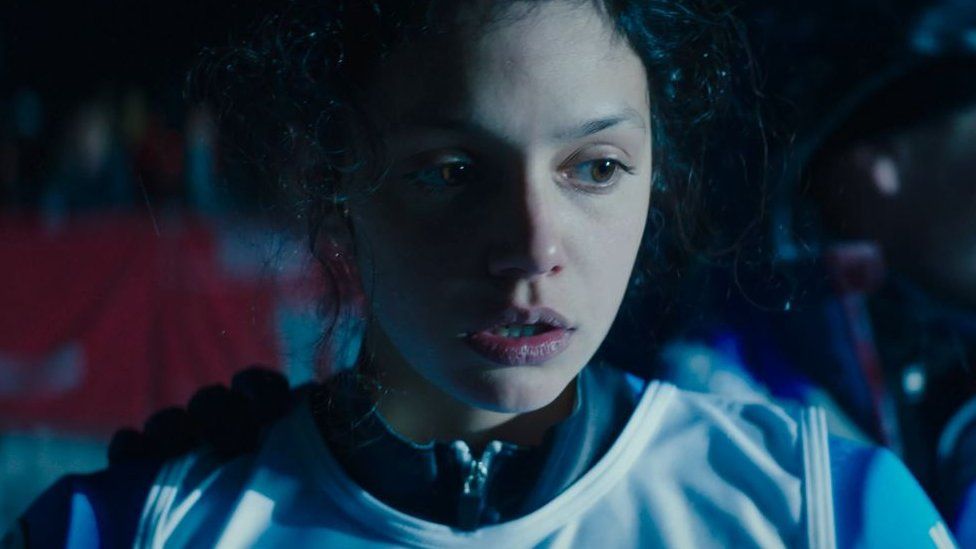
"I felt so alone, and no one wanted to hear it. It was hard to finance the film, people were telling me, 'Oh, this is really interesting, it's great writing but no.' They didn't want to hear it or face it either.
"So I think #MeToo gave me some power to keep going with the film, and when the recent sex scandals in the sports world broke, the film was finished. I knew it was an important story to tell.
"With Slalom, people will be able to understand my message. If the film had been released a few years ago, its reception would have definitely been different. It helps the film, I think."
The release of documentaries such as Athlete A on Netflix, an investigation into the US Gymnastics scandal, has also raised the profile of a hitherto rarely discussed subject.
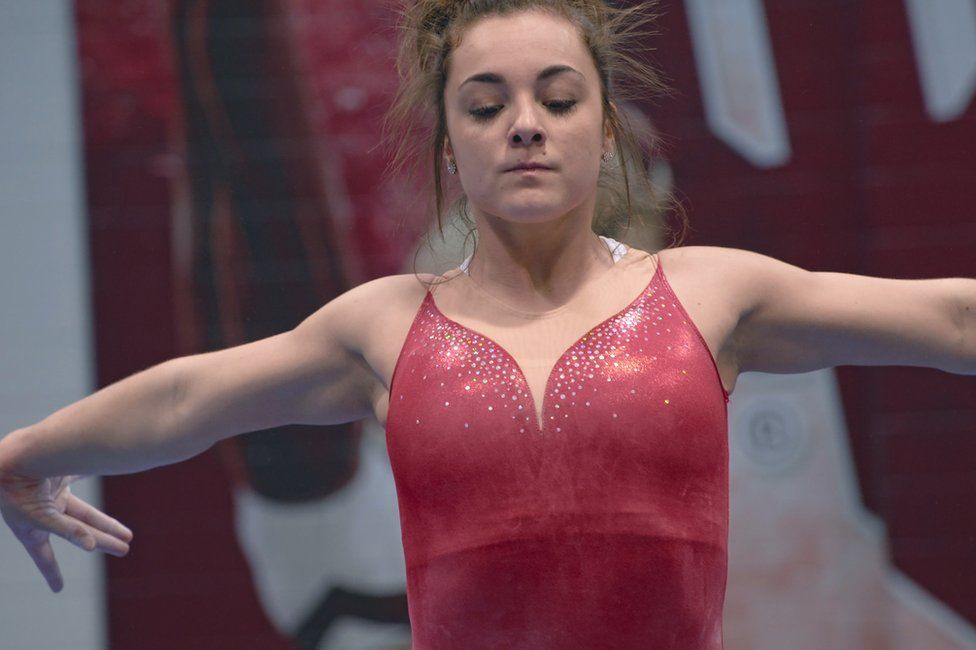
In 2018, Laura Dern also starred in The Tale, an HBO film directed by Jennifer Fox, about the grooming Fox had suffered at the hands of her running coach, and how she only came to realise it later in life.
BBC Radio 4 Today sports presenter Karthi Gnanasegaram points out that sexual abuse can happen to any gender in sport.
"I think Britain's biggest sex abuse scandal in sports was made public in 2016, thanks to the bravery of Andy Woodward. He spoke about the abuse he suffered in football from the age of 11, which just shows how many years it can take for people to talk about it," she explains.
"Then we've seen abuse within US gymnastics and French figure skating become public knowledge. It's the numbers of people reporting abuse and the timescale that are so upsetting. It becomes incredibly worrying that generations of adults in positions of power have been allowed to get away with it.
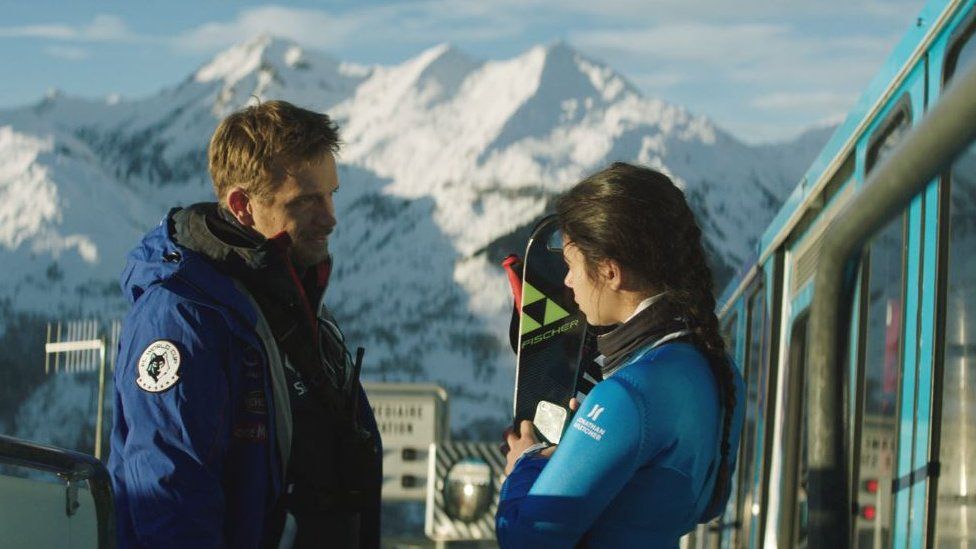
"I found Slalom quite difficult to watch sometimes, possibly as it was fiction, and it feels very close to home as it's sport, but it takes the issue to a much wider audience.
"I thought it also portrayed very accurately that single-mindedness is part of sport, and the idea that you might have to do anything, literally anything, if you want to be the best in the world.
"So many sports people have a mindset that you have to do hour after hour of training and be the last to leave practice. It can explain in some way what can happen - you have that intensity and drive, and that's the point at which young people can be taken advantage of."
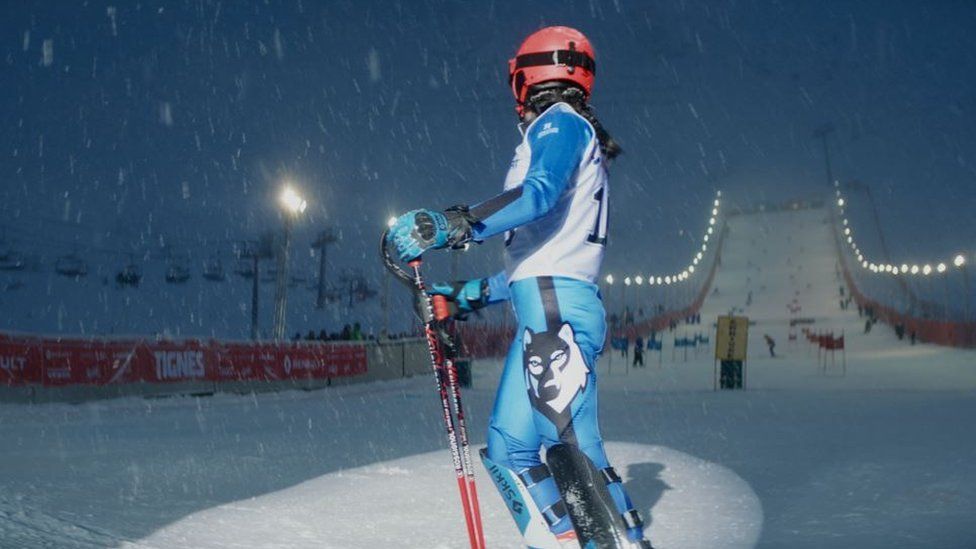
Charlène Favier is herself critical of the training system for young people within sports, and its historic lack of boundaries.
"It can happen with girls, it can also happen with boys, so this film tells the world that we have to put up a boundary," she says.
"It cannot be that there are no rules, just because the young people are there to potentially compete at the Olympics one day.
"Parents need to be there, they need to be focused on their children and not to just blindly accept that trainers know what they're doing. Not enough money has been given to clubs to help hire psychologists to watch and help these young people either, in many cases.
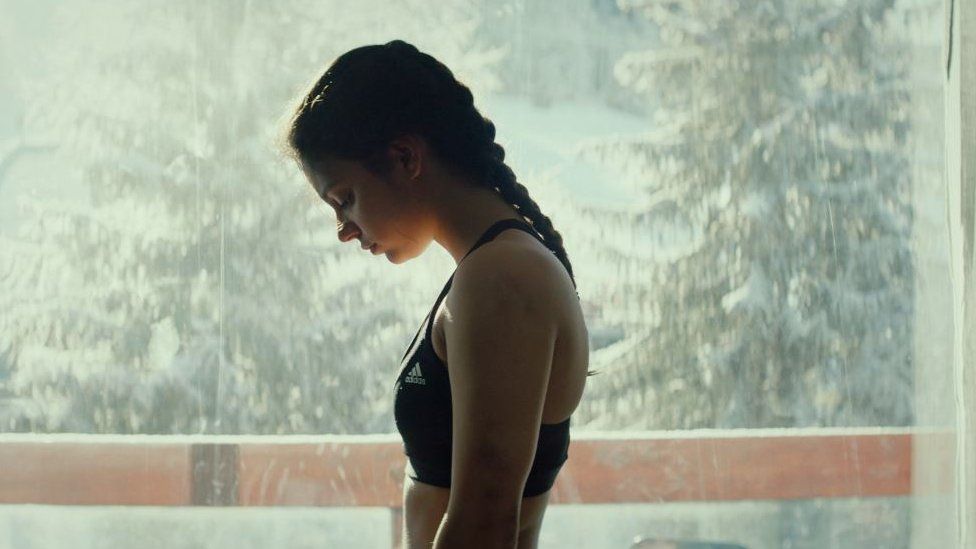
"Sometimes the problem is the mental attitude of the trainer, they don't know how to deal with these issues alone. In my film, it's a small club, and that's worse, because it's less people and less money, so the trainer does everything alone and it opens the door to a big mess, a disaster."
Slalom was selected in the 2020 Cannes Film Festival, although the full event was never physically held due to Covid-19. As the film is released online in the UK, Favier says that writing it was therapeutic.
"I make films to say the things that I've never been able to," she says. "When I realised I was writing a story about sexual abuse, I was so afraid of the subject I almost stopped writing.
"But my producer, and other people around me, helped me to face the subject, and my own story. It ended up being so helpful to me to make this film, as the journey took five years, and I grew up a lot making Slalom. It's not only a huge change in my career but also I feel so much freer today."
Slalom is on release on Curzon Home Cinema.
"story" - Google News
February 14, 2021 at 07:18AM
https://ift.tt/3rJw5NU
Slalom: Film director 'was afraid' to tell story of abuse on the slopes - BBC News
"story" - Google News
https://ift.tt/2YrOfIK
https://ift.tt/2xwebYA
Bagikan Berita Ini














0 Response to "Slalom: Film director 'was afraid' to tell story of abuse on the slopes - BBC News"
Post a Comment